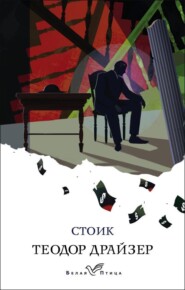По всем вопросам обращайтесь на: info@litportal.ru
(©) 2003-2024.
✖
Sister Carrie / Сестра Кэрри. Книга для чтения на английском языке
Настройки чтения
Размер шрифта
Высота строк
Поля
On the other hand, his interest in Drouet’s little shop-girl grew in an almost evenly balanced proportion. That young lady, under the stress of her situation and the tutelage of her new friend, changed effectively. She had the aptitude of the struggler who seeks emancipation. The glow of a more showy life was not lost upon her. She did not grow in knowledge so much as she awakened in the matter of desire. Mrs. Hale’s extended harangues upon the subjects of wealth and position taught her to distinguish between degrees of wealth. Mrs. Hale loved to drive in the afternoon in the sun when it was fine, and to satisfy her soul with a sight of those mansions and lawns which she could not afford. On the North Side had been erected a number of elegant mansions along what is now known as the North Shore Drive. The present lake wall of stone and granite was not then in place, but the road had been well laid out, the intermediate spaces of lawn were lovely to look upon, and the houses were thoroughly new and imposing. When the winter season had passed and the first fine days of the early spring appeared, Mrs. Hale secured a buggy for an afternoon and invited Carrie. They rode first through Lincoln Park and on far out towards Evanston, turning back at four and arriving at the north end of the Shore Drive at about five o’clock. At this time of year the days are still comparatively short, and the shadows of the evening were beginning to settle down upon the great city. Lamps were beginning to burn with that mellow radiance which seems almost watery and translucent to the eye. There was a softness in the air which speaks with an infinite delicacy of feeling to the flesh as well as to the soul. Carrie felt that it was a lovely day. She was ripened by it in spirit for many suggestions. As they drove along the smooth pavement an occasional carriage passed. She saw one stop and the footman dismount, opening the door for a gentleman who seemed to be leisurely returning from some afternoon pleasure. Across the broad lawns, now first freshening into green, she saw lamps faintly glowing upon rich interiors. Now it was but a chair, now a table, now an ornate corner, which met her eye, but it appealed to her as almost nothing else could. Such childish fancies as she had had of fairy palaces and kingly quarters now came back. She imagined that across these richly carved entrance-ways, where the globed and crystalled lamps shone upon paneled doors set with stained and designed panes of glass, was neither care nor unsatisfied desire. She was perfectly certain that here was happiness. If she could but stroll up yon broad walk, cross that rich entrance-way, which to her was of the beauty of a jewel, and sweep in grace and luxury to possession and command – oh! how quickly would sadness flee; how, in an instant, would the heartache end. She gazed and gazed, wondering, delighting, longing, and all the while the siren voice of the unrestful was whispering in her ear.
“If we could have such a home as that,” said Mrs. Hale sadly, “how delightful it would be.”
“And yet they do say,” said Carrie, “that no one is ever happy.”
She had heard so much of the canting philosophy of the grapeless fox[61 - canting philosophy of the grapeless fox – лицемерных рассуждений о лисе и зеленом винограде].
“I notice,” said Mrs. Hale, “that they all try mighty hard, though, to take their misery in a mansion.”
When she came to her own rooms, Carrie saw their comparative insignificance. She was not so dull but that she could perceive they were but three small rooms in a moderately well-furnished boarding-house. She was not contrasting it now with what she had had, but what she had so recently seen. The glow of the palatial doors was still in her eye, the roll of cushioned carriages still in her ears. What, after all, was Drouet? What was she? At her window, she thought it over, rocking to and fro, and gazing out across the lamp-lit park toward the lamp-lit houses on Warren and Ashland avenues. She was too wrought up to care to go down to eat, too pensive to do aught but rock and sing. Some old tunes crept to her lips, and, as she sang them, her heart sank. She longed and longed and longed. It was now for the old cottage room in Columbia City, now the mansion upon the Shore Drive, now the fine dress of some lady, now the elegance of some scene. She was sad beyond measure, and yet uncertain, wishing, fancying. Finally, it seemed as if all her state was one of loneliness and forsakenness, and she could scarce refrain from trembling at the lip. She hummed and hummed as the moments went by, sitting in the shadow by the window, and was therein as happy, though she did not perceive it, as she ever would be.
While Carrie was still in this frame of mind, the house-servant brought up the intelligence that Mr. Hurstwood was in the parlor asking to see Mr. and Mrs. Drouet.
“I guess he doesn’t know that Charlie is out of town,” thought Carrie.
She had seen comparatively little of the manager during the winter, but had been kept constantly in mind of him by one thing and another, principally by the strong impression he had made. She was quite disturbed for the moment as to her appearance, but soon satisfied herself by the aid of the mirror, and went below.
Hurstwood was in his best form, as usual. He hadn’t heard that Drouet was out of town. He was but slightly affected by the intelligence, and devoted himself to the more general topics which would interest Carrie. It was surprising – the ease with which he conducted a conversation. He was like every man who has had the advantage of practice and knows he has sympathy. He knew that Carrie listened to him pleasurably, and, without the least effort, he fell into a train of observation which absorbed her fancy. He drew up his chair and modulated his voice to such a degree that what he said seemed wholly confidential. He confined himself almost exclusively to his observation of men and pleasures. He had been here and there, he had seen this and that. Somehow he made Carrie wish to see similar things, and all the while kept her aware of himself. She could not shut out the consciousness of his individuality and presence for a moment. He would raise his eyes slowly in smiling emphasis of something, and she was fixed by their magnetism. He would draw out, with the easiest grace, her approval. Once he touched her hand for emphasis and she only smiled. He seemed to radiate an atmosphere which suffused her being. He was never dull for a minute, and seemed to make her clever. At least, she brightened under his influence until all her best side was exhibited. She felt that she was more clever with him than with others. At least, he seemed to find so much in her to applaud. There was not the slightest touch of patronage. Drouet was full of it.
There had been something so personal, so subtle, in each meeting between them, both when Drouet was present and when he was absent, that Carrie could not speak of it without feeling a sense of difficulty. She was no talker. She could never arrange her thoughts in fluent order. It was always a matter of feeling with her, strong and deep. Each time there had been no sentence of importance which she could relate, and as for the glances and sensations, what woman would reveal them? Such things had never been between her and Drouet. As a matter of fact, they could never be. She had been dominated by distress and the enthusiastic forces of relief which Drouet represented at an opportune moment when she yielded to him. Now she was persuaded by secret current feelings which Drouet had never understood. Hurstwood’s glance was as effective as the spoken words of a lover, and more. They called for no immediate decision, and could not be answered.
People in general attach too much importance to words. They are under the illusion that talking effects great results. As a matter of fact, words are, as a rule, the shallowest portion of all the argument. They but dimly represent the great surging feelings and desires which lie behind. When the distraction of the tongue is removed, the heart listens.
In this conversation she heard, instead of his words, the voices of the things which he represented. How suave was the counsel of his appearance![62 - How suave was the counsel of his appearance! – Как красноречиво говорила за него его внешность!] How feelingly did his superior state speak for itself! The growing desire he felt for her lay upon her spirit as a gentle hand. She did not need to tremble at all, because it was invisible; she did not need to worry over what other people would say – what she herself would say – because it had no tangibility. She was being pleaded with, persuaded, led into denying old rights and assuming new ones, and yet there were no words to prove it. Such conversation as was indulged in held the same relationship to the actual mental enactments of the twain that the low music of the orchestra does to the dramatic incident which it is used to cover.
“Have you ever seen the houses along the Lake Shore on the North Side?” asked Hurstwood.
“Why, I was just over there this afternoon – Mrs. Hale and I. Aren’t they beautiful?”
“They’re very fine,” he answered.
“Oh, me,” said Carrie, pensively. “I wish I could live in such a place.”
“You’re not happy,” said Hurstwood, slowly, after a slight pause.
He had raised his eyes solemnly and was looking into her own. He assumed that he had struck a deep chord. Now was a slight chance to say a word in his own behalf. He leaned over quietly and continued his steady gaze. He felt the critical character of the period. She endeavoured to stir, but it was useless. The whole strength of a man’s nature was working. He had good cause to urge him on. He looked and looked, and the longer the situation lasted the more difficult it became. The little shop-girl was getting into deep water. She was letting her few supports float away from her.
“Oh,” she said at last, “you mustn’t look at me like that.”
“I can’t help it,” he answered.
She relaxed a little and let the situation endure, giving him strength.
“You are not satisfied with life, are you?”
“No,” she answered, weakly.
He saw he was the master of the situation – he felt it. He reached over and touched her hand.
“You mustn’t,” she exclaimed, jumping up.
“I didn’t intend to,” he answered, easily.
She did not run away, as she might have done. She did not terminate the interview, but he drifted off into a pleasant field of thought with the readiest grace. Not long after he rose to go, and she felt that he was in power. “You mustn’t feel bad,” he said, kindly; “things will straighten out in the course of time.”
She made no answer, because she could think of nothing to say.
“We are good friends, aren’t we?” he said, extending his hand.
“Yes,” she answered.
“Not a word, then, until I see you again.”
He retained a hold on her hand.
“I can’t promise,” she said, doubtfully.
“You must be more generous than that,” he said, in such a simple way that she was touched.
“Let’s not talk about it any more,” she returned.
“All right,” he said, brightening.
He went down the steps and into his cab. Carrie closed the door and ascended into her room. She undid her broad lace collar before the mirror and unfastened her pretty alligator belt which she had recently bought.
“I’m getting terrible,” she said, honestly affected by a feeling of trouble and shame. “I don’t seem to do anything right.”
She unloosed her hair after a time, and let it hang in loose brown waves. Her mind was going over the events of the evening.
“I don’t know,” she murmured at last, “what I can do.”
“Well,” said Hurstwood as he rode away, “she likes me all right; that I know.”
The aroused manager whistled merrily for a good four miles to his office an old melody that he had not recalled for fifteen years.
Chapter XIII
His Credentials Accepted: A Babel of Tongues
It was not quite two days after the scene between Carrie and Hurstwood in the Ogden Place parlor before he again put in his appearance. He had been thinking almost uninterruptedly of her. Her leniency had, in a way, inflamed his regard. He felt that he must succeed with her, and that speedily.
The reason for his interest, not to say fascination, was deeper than mere desire. It was a flowering out of feelings which had been withering in dry and almost barren soil for many years. It is probable that Carrie represented a better order of woman than had ever attracted him before. He had had no love affair since that which culminated in his marriage, and since then time and the world had taught him how raw and erroneous was his original judgment. Whenever he thought of it, he told himself that, if he had it to do over again, he would never marry such a woman. At the same time, his experience with women in general had lessened his respect for the sex. He maintained a cynical attitude, well grounded on numerous experiences. Such women as he had known were of nearly one type, selfish, ignorant, flashy. The wives of his friends were not inspiring to look upon. His own wife had developed a cold, commonplace nature which to him was anything but pleasing.
Hurstwood had gone, at Drouet’s invitation, to meet a new baggage of fine clothes and pretty features. He entered, expecting to indulge in an evening of lightsome frolic, and then lose track of the newcomer forever. Instead he found a woman whose youth and beauty attracted him. In the mild light of Carrie’s eye was nothing of the calculation of the mistress. In the diffident manner was nothing of the art of the courtesan. He saw at once that a mistake had been made, that some difficult conditions had pushed this troubled creature into his presence, and his interest was enlisted. Here sympathy sprang to the rescue, but it was not unmixed with selfishness. He wanted to win Carrie because he thought her fate mingled with his was better than if it were united with Drouet’s. He envied the drummer his conquest as he had never envied any man in all the course of his experience.
On this Friday afternoon, scarcely two days after his previous visit, he made up his mind to see Carrie. He could not stay away longer.
“Evans,” he said, addressing the head barkeeper, “if any one calls, I will be back between four and five.”
“If we could have such a home as that,” said Mrs. Hale sadly, “how delightful it would be.”
“And yet they do say,” said Carrie, “that no one is ever happy.”
She had heard so much of the canting philosophy of the grapeless fox[61 - canting philosophy of the grapeless fox – лицемерных рассуждений о лисе и зеленом винограде].
“I notice,” said Mrs. Hale, “that they all try mighty hard, though, to take their misery in a mansion.”
When she came to her own rooms, Carrie saw their comparative insignificance. She was not so dull but that she could perceive they were but three small rooms in a moderately well-furnished boarding-house. She was not contrasting it now with what she had had, but what she had so recently seen. The glow of the palatial doors was still in her eye, the roll of cushioned carriages still in her ears. What, after all, was Drouet? What was she? At her window, she thought it over, rocking to and fro, and gazing out across the lamp-lit park toward the lamp-lit houses on Warren and Ashland avenues. She was too wrought up to care to go down to eat, too pensive to do aught but rock and sing. Some old tunes crept to her lips, and, as she sang them, her heart sank. She longed and longed and longed. It was now for the old cottage room in Columbia City, now the mansion upon the Shore Drive, now the fine dress of some lady, now the elegance of some scene. She was sad beyond measure, and yet uncertain, wishing, fancying. Finally, it seemed as if all her state was one of loneliness and forsakenness, and she could scarce refrain from trembling at the lip. She hummed and hummed as the moments went by, sitting in the shadow by the window, and was therein as happy, though she did not perceive it, as she ever would be.
While Carrie was still in this frame of mind, the house-servant brought up the intelligence that Mr. Hurstwood was in the parlor asking to see Mr. and Mrs. Drouet.
“I guess he doesn’t know that Charlie is out of town,” thought Carrie.
She had seen comparatively little of the manager during the winter, but had been kept constantly in mind of him by one thing and another, principally by the strong impression he had made. She was quite disturbed for the moment as to her appearance, but soon satisfied herself by the aid of the mirror, and went below.
Hurstwood was in his best form, as usual. He hadn’t heard that Drouet was out of town. He was but slightly affected by the intelligence, and devoted himself to the more general topics which would interest Carrie. It was surprising – the ease with which he conducted a conversation. He was like every man who has had the advantage of practice and knows he has sympathy. He knew that Carrie listened to him pleasurably, and, without the least effort, he fell into a train of observation which absorbed her fancy. He drew up his chair and modulated his voice to such a degree that what he said seemed wholly confidential. He confined himself almost exclusively to his observation of men and pleasures. He had been here and there, he had seen this and that. Somehow he made Carrie wish to see similar things, and all the while kept her aware of himself. She could not shut out the consciousness of his individuality and presence for a moment. He would raise his eyes slowly in smiling emphasis of something, and she was fixed by their magnetism. He would draw out, with the easiest grace, her approval. Once he touched her hand for emphasis and she only smiled. He seemed to radiate an atmosphere which suffused her being. He was never dull for a minute, and seemed to make her clever. At least, she brightened under his influence until all her best side was exhibited. She felt that she was more clever with him than with others. At least, he seemed to find so much in her to applaud. There was not the slightest touch of patronage. Drouet was full of it.
There had been something so personal, so subtle, in each meeting between them, both when Drouet was present and when he was absent, that Carrie could not speak of it without feeling a sense of difficulty. She was no talker. She could never arrange her thoughts in fluent order. It was always a matter of feeling with her, strong and deep. Each time there had been no sentence of importance which she could relate, and as for the glances and sensations, what woman would reveal them? Such things had never been between her and Drouet. As a matter of fact, they could never be. She had been dominated by distress and the enthusiastic forces of relief which Drouet represented at an opportune moment when she yielded to him. Now she was persuaded by secret current feelings which Drouet had never understood. Hurstwood’s glance was as effective as the spoken words of a lover, and more. They called for no immediate decision, and could not be answered.
People in general attach too much importance to words. They are under the illusion that talking effects great results. As a matter of fact, words are, as a rule, the shallowest portion of all the argument. They but dimly represent the great surging feelings and desires which lie behind. When the distraction of the tongue is removed, the heart listens.
In this conversation she heard, instead of his words, the voices of the things which he represented. How suave was the counsel of his appearance![62 - How suave was the counsel of his appearance! – Как красноречиво говорила за него его внешность!] How feelingly did his superior state speak for itself! The growing desire he felt for her lay upon her spirit as a gentle hand. She did not need to tremble at all, because it was invisible; she did not need to worry over what other people would say – what she herself would say – because it had no tangibility. She was being pleaded with, persuaded, led into denying old rights and assuming new ones, and yet there were no words to prove it. Such conversation as was indulged in held the same relationship to the actual mental enactments of the twain that the low music of the orchestra does to the dramatic incident which it is used to cover.
“Have you ever seen the houses along the Lake Shore on the North Side?” asked Hurstwood.
“Why, I was just over there this afternoon – Mrs. Hale and I. Aren’t they beautiful?”
“They’re very fine,” he answered.
“Oh, me,” said Carrie, pensively. “I wish I could live in such a place.”
“You’re not happy,” said Hurstwood, slowly, after a slight pause.
He had raised his eyes solemnly and was looking into her own. He assumed that he had struck a deep chord. Now was a slight chance to say a word in his own behalf. He leaned over quietly and continued his steady gaze. He felt the critical character of the period. She endeavoured to stir, but it was useless. The whole strength of a man’s nature was working. He had good cause to urge him on. He looked and looked, and the longer the situation lasted the more difficult it became. The little shop-girl was getting into deep water. She was letting her few supports float away from her.
“Oh,” she said at last, “you mustn’t look at me like that.”
“I can’t help it,” he answered.
She relaxed a little and let the situation endure, giving him strength.
“You are not satisfied with life, are you?”
“No,” she answered, weakly.
He saw he was the master of the situation – he felt it. He reached over and touched her hand.
“You mustn’t,” she exclaimed, jumping up.
“I didn’t intend to,” he answered, easily.
She did not run away, as she might have done. She did not terminate the interview, but he drifted off into a pleasant field of thought with the readiest grace. Not long after he rose to go, and she felt that he was in power. “You mustn’t feel bad,” he said, kindly; “things will straighten out in the course of time.”
She made no answer, because she could think of nothing to say.
“We are good friends, aren’t we?” he said, extending his hand.
“Yes,” she answered.
“Not a word, then, until I see you again.”
He retained a hold on her hand.
“I can’t promise,” she said, doubtfully.
“You must be more generous than that,” he said, in such a simple way that she was touched.
“Let’s not talk about it any more,” she returned.
“All right,” he said, brightening.
He went down the steps and into his cab. Carrie closed the door and ascended into her room. She undid her broad lace collar before the mirror and unfastened her pretty alligator belt which she had recently bought.
“I’m getting terrible,” she said, honestly affected by a feeling of trouble and shame. “I don’t seem to do anything right.”
She unloosed her hair after a time, and let it hang in loose brown waves. Her mind was going over the events of the evening.
“I don’t know,” she murmured at last, “what I can do.”
“Well,” said Hurstwood as he rode away, “she likes me all right; that I know.”
The aroused manager whistled merrily for a good four miles to his office an old melody that he had not recalled for fifteen years.
Chapter XIII
His Credentials Accepted: A Babel of Tongues
It was not quite two days after the scene between Carrie and Hurstwood in the Ogden Place parlor before he again put in his appearance. He had been thinking almost uninterruptedly of her. Her leniency had, in a way, inflamed his regard. He felt that he must succeed with her, and that speedily.
The reason for his interest, not to say fascination, was deeper than mere desire. It was a flowering out of feelings which had been withering in dry and almost barren soil for many years. It is probable that Carrie represented a better order of woman than had ever attracted him before. He had had no love affair since that which culminated in his marriage, and since then time and the world had taught him how raw and erroneous was his original judgment. Whenever he thought of it, he told himself that, if he had it to do over again, he would never marry such a woman. At the same time, his experience with women in general had lessened his respect for the sex. He maintained a cynical attitude, well grounded on numerous experiences. Such women as he had known were of nearly one type, selfish, ignorant, flashy. The wives of his friends were not inspiring to look upon. His own wife had developed a cold, commonplace nature which to him was anything but pleasing.
Hurstwood had gone, at Drouet’s invitation, to meet a new baggage of fine clothes and pretty features. He entered, expecting to indulge in an evening of lightsome frolic, and then lose track of the newcomer forever. Instead he found a woman whose youth and beauty attracted him. In the mild light of Carrie’s eye was nothing of the calculation of the mistress. In the diffident manner was nothing of the art of the courtesan. He saw at once that a mistake had been made, that some difficult conditions had pushed this troubled creature into his presence, and his interest was enlisted. Here sympathy sprang to the rescue, but it was not unmixed with selfishness. He wanted to win Carrie because he thought her fate mingled with his was better than if it were united with Drouet’s. He envied the drummer his conquest as he had never envied any man in all the course of his experience.
On this Friday afternoon, scarcely two days after his previous visit, he made up his mind to see Carrie. He could not stay away longer.
“Evans,” he said, addressing the head barkeeper, “if any one calls, I will be back between four and five.”

















